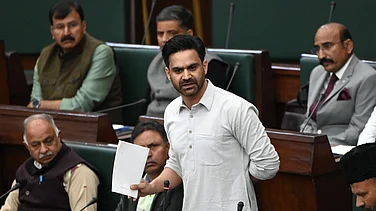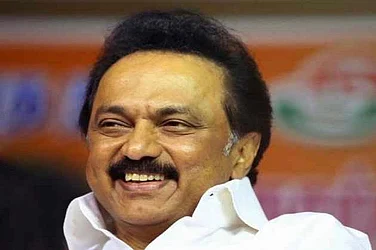Amid China's military expansion in the South China Sea and the East China Sea, Prime Minister Narendra Modi on Saturday said India is committed to protecting its sovereignty and integrity while promoting peaceful resolution of maritime disputes based on international law.
In an interview with Japanese newspaper Yomiuri Shimbun, Modi, during his visit to Hiroshima to attend the G7 summit, said the G7 and G20 summits are crucial platforms for global cooperation.
"As the G20 chair, I will represent the perspectives and priorities of the Global South at the G7 Summit in Hiroshima. Strengthening collaboration between the G7 and G20 is vital in addressing global challenges like climate change, supply chain disruptions, economic recovery, energy instability, healthcare, food security, and peace and security," Modi said.
The Special Strategic and Global Partnership between India and Japan provides a strong foundation for the joint efforts of the two countries, contributing to global cooperation on these issues, he asserted.
Asked about his view on Russia's invasion of Ukraine, and how India responds to negative reactions regarding its abstention from voting on UN resolutions and increased oil imports from Russia, Modi said India advocates for dialogue and diplomacy to resolve disputes and prioritise the well-being of people affected by rising costs of essentials.
"India abstained from UN General Assembly resolutions to condemn the invasion but remains committed to upholding the UN Charter, international law, sovereignty, and territorial integrity. India supports a peaceful resolution to the Ukraine crisis and is ready to contribute constructively within the UN and beyond," the prime minister said.
Asked how India will address China's military expansion in the South China Sea and the East China Sea, and the rising tension in the Taiwan Strait to maintain international law and territorial integrity, Modi said, "India stands for respecting sovereignty, peaceful resolution of disputes and adherence to international law."
India is committed to protecting its sovereignty and integrity while promoting peaceful resolution of maritime disputes based on international law, he said.
Modi said India has successfully resolved land and maritime boundaries with Bangladesh, showcasing its approach.
Asked about his views on the intensifying rivalries among major powers and how India will work with them to attain global peace and stability, the prime minister said the world faces challenges like the COVID-19 pandemic, disruptions in supply chains, terrorism, and climate change, disproportionately affecting the developing world.
India prioritises addressing these concerns and emphasises human-centric development through collaboration with Japan and other partners, Modi said.
India aims to serve as a bridge between different voices, promoting a constructive agenda focused on achieving shared objectives for the betterment of humanity, he said.


























